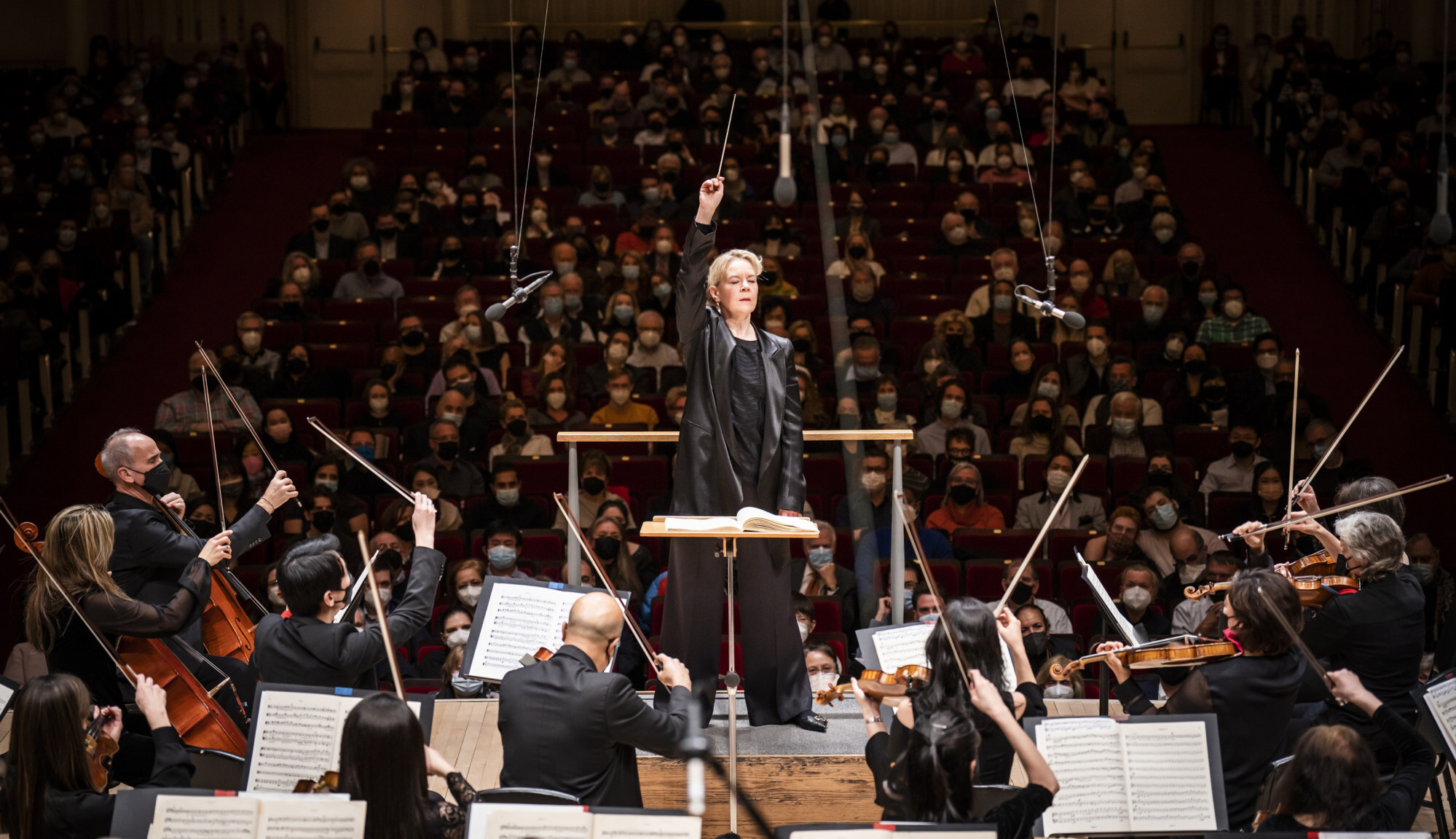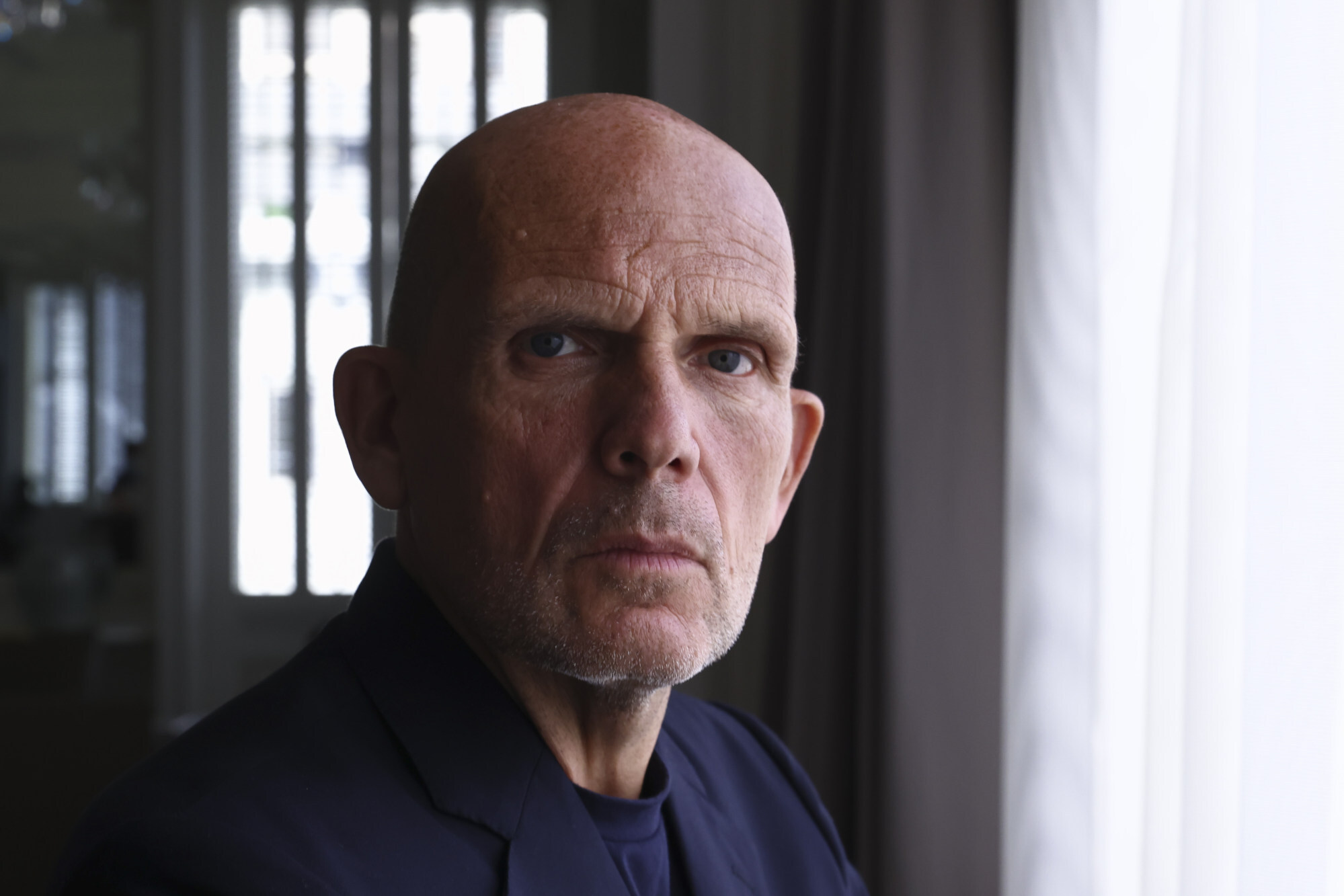
A first woman as music director of New York Philharmonic? Susanna Malkki is tipped to succeed Jaap van Zweden at the leading orchestra
- Susanna Malkki tipped to replace Jaap van Zweden at the New York orchestra after 2023/24 season, when he leaves that job and same role at Hong Kong Philharmonic
- The orchestra’s chief executive says the Finnish conductor brings ‘an emotional as well as intellectual connection to the music that is really unique’
Her arms at her side against her glimmering, long black jacket and her blonde hair pulled into a ponytail, Susanna Malkki soaked in several minutes of applause after a thrilling debut at New York’s Carnegie Hall.
She had just conducted the New York Philharmonic in a challenging programme, perceived as a possible prelude to becoming the first woman music director of an orchestra that started in 1842.
“Of course, it’s always an honour to be mentioned in this kind of context,” she said before the performance.
Musicians beamed as the audience erupted following the Philharmonic’s first Carnegie Hall appearance in six years, broadcast live on radio.
She obviously is very passionate about her performance and about music
Leelanee Sterrett, the acting associate principal horn, detected a “focused energy” that Malkki brought to the podium and called it “one of those performances where in the concert everything was kind of taken up a notch, dialled up a notch”.
A native of Finland who turns 53 on March 13, Malkki studied at Helsinki’s Sibelius Academy and London’s Royal Academy of Music, and she was mentored by Esa-Pekka Salonen.

She was principal cellist of the Gothenburg Symphony Orchestra in Sweden from 1995 to 1998, then left to concentrate on conducting.
Malkki served as music director of the Paris-based Ensemble Intercontemporain from 2006 to 2013, became chief conductor of the Helsinki Philharmonic Orchestra starting during the 2016/2017 season and principal guest conductor of the Los Angeles Philharmonic for 2017/18.
She announced last month she will leave the Finland post at the end of the 2022/2023 season.
A woman has never been music director of what was long known as the Big Five: the New York Philharmonic, Boston Symphony Orchestra, Chicago Symphony Orchestra, Philadelphia Orchestra and Cleveland Orchestra.
Jaap van Zweden said in September 2020 he would leave the New York Philharmonic at the end of the 2023/2024 season after six years as music director. Orchestra members know when a potential successor is leading them.
“Of course we’re conscious of that. How could you not be?” principal cellist Carter Brey said. “But I think that occupies a small corner of our awareness at the time. We’re just focused on making music as well as we can.”
I know for me as a woman, it’s extremely meaningful to have somebody on the podium who reflects my identity
Malkki made her New York Philharmonic debut on May 21, 2015. When she made her Metropolitan Opera debut in New York in December 2016, she was just the fourth woman conductor of a company that started in 1883.
“At first meeting, she can seem somewhat reserved, but she obviously is very passionate about her performance and about music,” Met general manager Peter Gelb said. “She may have the surface dryness or wryness of other Finnish artists I have known, but her passion quickly comes out when she’s on the podium.”

Malkki is one of five women conductors at the Met this season. She is one of 21 to lead the Philharmonic, including four so far this season.
“I know for me as a woman, it’s extremely meaningful to have somebody on the podium who reflects my identity, and I feel that every time we work with a woman conductor,” Sterrett said. “So I think that as you see people breaking through, it just changes the whole dialogue around us. It changes the paradigm.”
Deborah Borda, who returned to the New York Philharmonic as CEO in 2017 after 17 seasons as CEO in Los Angeles, hired Malkki as principal guest conductor.
“She has a very powerful and quiet charisma and what she brings is an emotional as well as intellectual connection to the music that is really unique,” Borda said.
Borda said the music director search is “a very delicate procedure”.
“There are obviously various stakeholders involved within our community, and the guests as well, and it is so important that we protect the confidentiality and sanctity of the process.”
Typical of conductors, Malkki leads a peripatetic life. She has homes in Paris, where she keeps her scores, and in Finland. “Helsinki is good because I grew up there, my parents are there,” she said. “It’s nice to have a pied-à-terre in Helsinki, but Paris is definitely home.”
She will be back in New York in May to conduct Stravinsky’s The Rake’s Progress, and is signed up for Beethoven’s Fidelio in a future season and Kaija Saariaho’s Innocence in 2025/2026 after leading its world premiere last summer at Aix-en-Provence, France. She will conduct Alban Berg’s Wozzeck at the Paris Opera in March.
Known for her interest in late 20th century and contemporary compositions, she has committed to future performances of Puccini’s Il Trittico, Debussy’s Pelléas et Mélisande and Janácek’s The Makropulos Case, and hopes in the future to lead Puccini’s La Bohème and Wagner’s Ring Cycle and Tristan und Isolde.
“I’ve been speaking about my interest for opera and there have been more and more invitations. And then I’ve just been grabbing everything, and it’s really exciting,” she said.
“I love working with singers. There’s something of a storytelling quality that I love. I guess I can even say that I somehow identify with the singers. I would love to be one of them.”

